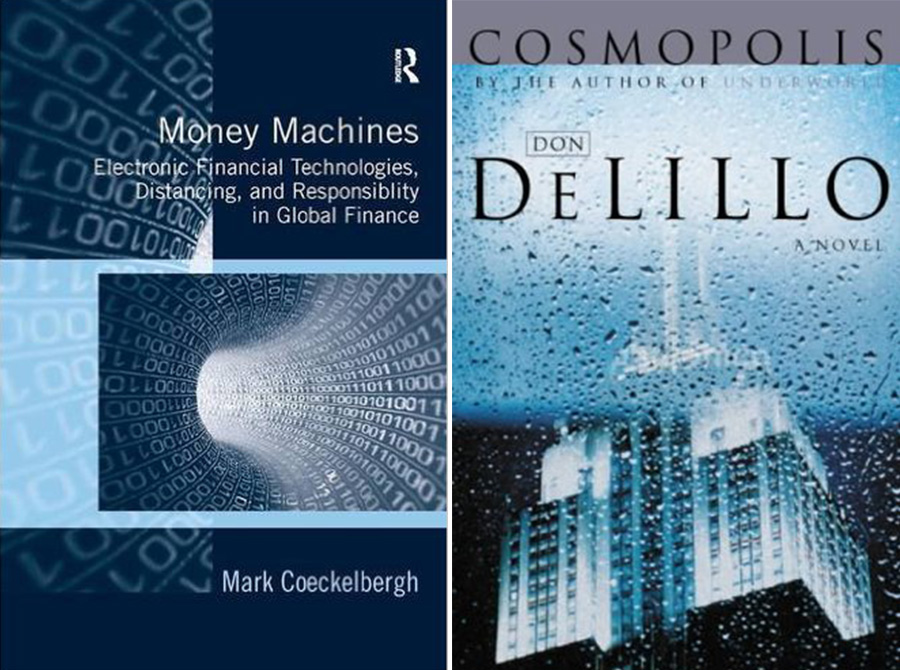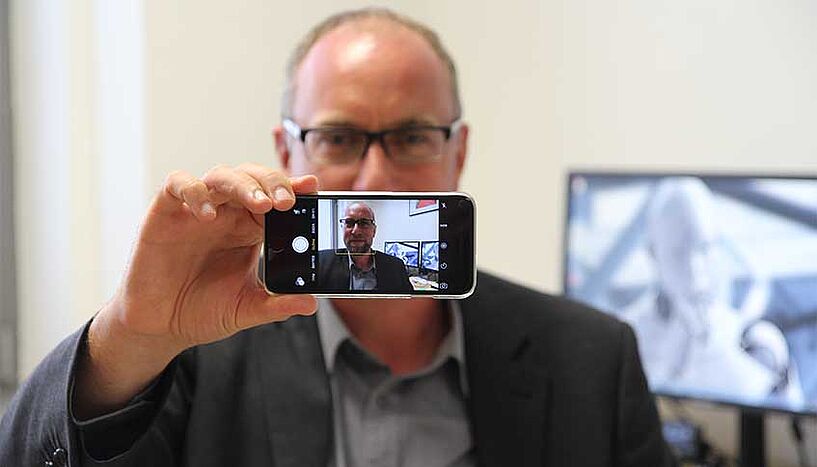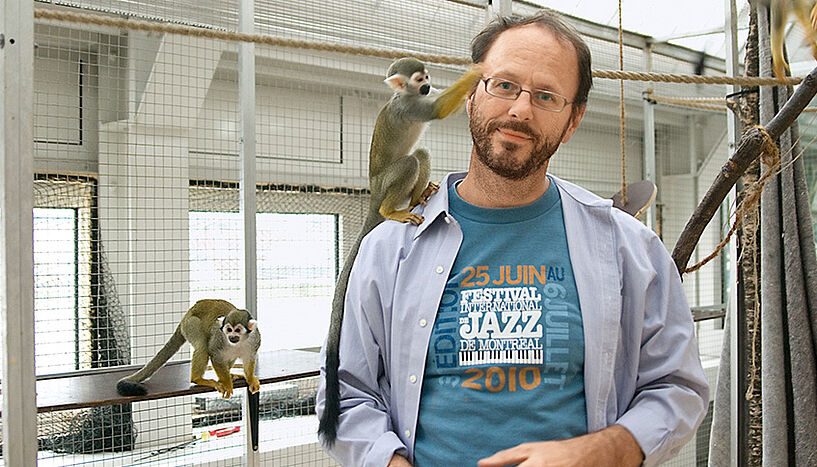"Buchtipp des Monats" by Mark Coeckelbergh
| 12. Januar 2017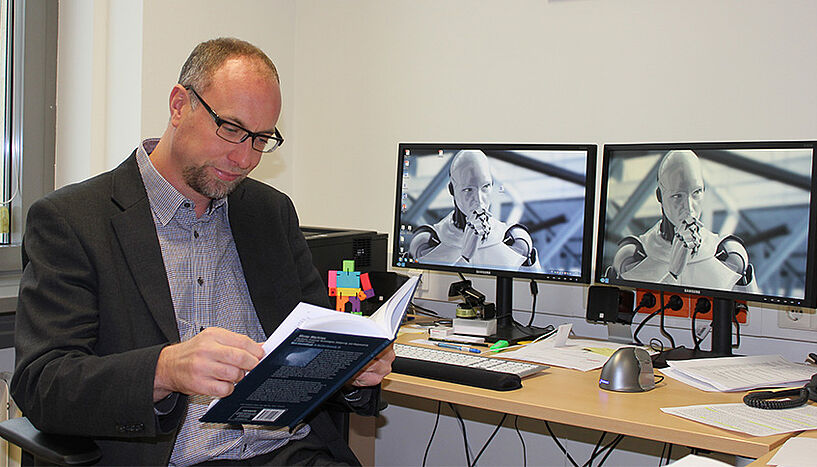
For philosopher Mark Coeckelbergh it is essential that we consider the ethics of new technologies. (Photo: University of Vienna)
Mark Coeckelbergh does not believe in a "robot apocalypse" but is quite sure that a new crash is waiting to happen. In his publication "Money Machines" he takes an ethical look on the role of financial technologies. And he has a book recommendation for our readers.
uni:view: In your publication "Money Machines. Electronic Financial Technologies, Distancing, and Responsibility in Global Finance", you focus on the role of technology in global finance. What is your intention in exploring this field?
Mark Coeckelbergh: I wrote Money Machines after the 2008 crisis because I wondered about the role of financial technologies. The focus back then was always on the ethics of the humans, the bankers for instance. But there was little attention to the role of technologies in finance. Also in the philosophy of technology this was a non-existing or marginal topic. So I decided to write a book about it.
uni:view: What is the impact of financial information and communication technologies concerning ethical and societal meaning?
Coeckelbergh: New financial technologies have, like all financial technologies, an impact on our social relations. I first looked at Simmel's famous book on the philosophy of money. He argues that money creates more distance between people, more abstraction, and more quantification. This is maybe too pessimistic, but it's definitely relevant for today. Then I looked at ethical problems with high frequency trading. I asked how people in the financial world can take responsibility for what they do if they delegate trade to machines. There is the risk of problems with the code and a crash. Is the only thing that then can be done pulling out the plug? What are the consequences of a crash in a global context? There are serious risks here that need to be addressed. There is also the danger of being isolated from social problems: the trade has consequences for a lot of people everywhere in the world, but these problems do not reach the screens of the traders, let alone that they would know about them if algorithms do the trading. We urgently need more attention to ethics: not only ethics of finance in the sense of the intentions and character of humans, but also ethics of financial technologies.
uni:view: Taking a snapshot into the future of electronic financial technologies. Is a crash a thing of the past? What's your prediction?
Coeckelbergh: Given our current financial and economic system, and given the use of these technologies, a new crash is waiting to happen. The question is not if but when. And if we are prepared for it. I generally don't believe in "the robot apocalypse". But if there is a big change going to happen, it may well be one which involves algorithms in the financial world. They do not look like humans, they do not look like the "Terminators" of the films. They are invisible. But like many other algorithms that act as artificial agents, for instance on the internet we daily use, they can have huge consequences. It is important to assess and reflect on these risks and new vulnerabilities.
1 x "Money Machines" by Mark Coeckelbergh
1 x "Cosmopolis" by Don DeLillo
uni:view: Which book do you recommend?
Coeckelbergh: A book that's already a bit older but still very relevant in today's context is "Cosmopolis" from Don DeLillo. The book tells the story of a man who made a fortune in the financial world and uses an electronic, perhaps artificial, intelligent system to predict the stock market.
uni:view: Some thoughts on this book?
Coeckelbergh: Why I recommend the book today, is that we find ourselves in a highly risk and uncertain global world, in which there are a few people, an elite, making financial decisions that can influence a lot of other people. We have become dependent on these people, and on the technologies they use. What if something goes wrong? What if everything becomes automated? And of course today we also have the feeling of a crisis, and there are protests everywhere, on the street and with voting, many people – also in the West – are not benefiting from the current economic system. But the elite is to a significant extent shielded off from the people whose life they influence. 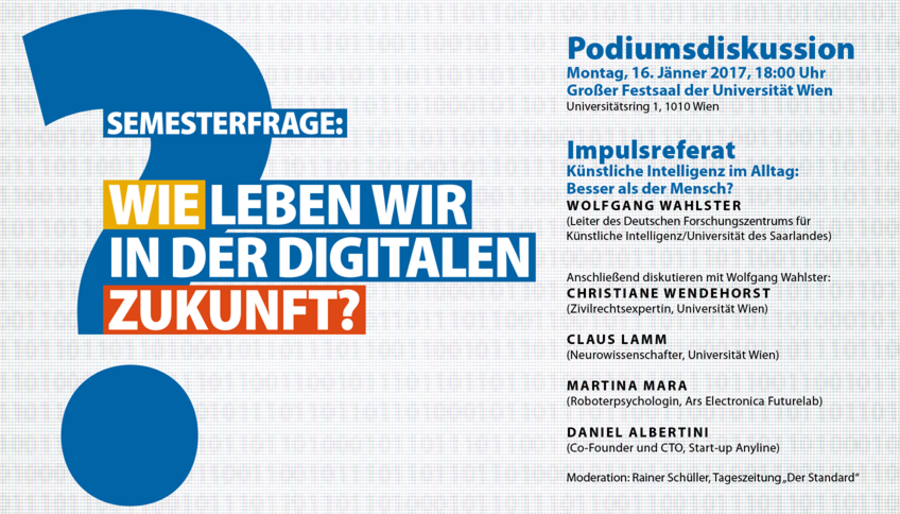
The car in the book is a symbol of the cocoon of the elite, there is little connection with the outside world, with the social problems and with the violence that arises when people have little hope. It's also a technological cocoon that alienates us from the natural environment. Thus, we also live in a global world full of threats: social-economic threats, security threats, and indeed threats created by the new technologies we use. And there is the constant threat of nihilism. What is of value? What is (still) real? What is the truth? Do we know our threats, or do the threats remain vague? And how do we respond to them? New technologies, in combination with a global economic system and all kinds of things people do, raise these long-standing questions in a new way. I hope we can find better solutions than violence.
uni:view: You have read the last sentence, close the book. What remains?
Coeckelbergh: What remains is a feeling that there are changes underway. Bad things to happen. But this should not be our last thought on this. I'm optimistic that we can change things for the better if we think more about for instance the ethics of new technologies and if we change politics in a better direction. (td)
Mark Coeckelbergh is Professor of Philosophy at the Department of Philosophy of the University of Vienna. His research focuses on the philosophy of technology and media, in particular on understanding and evaluating new developments in robotics, artificial intelligence and (other) information and communication technologies.

